Spray paint is one of the simplest kinds of paint in terms of application! You just need to take a can, shake it well, and apply the coat of paint to any surface you want.
And since spray paints come in the same wide variety of colors as regular paints, it becomes clear why so many people prefer using this type of paint for their home painting projects. However, quite many of these people tend to face a common issue of paint rubbing off soon after it has been applied to any surface.
Is it possible to avoid that? Let’s try to figure this out!
In this article, we will do our best to figure out what can be done if you want to prevent your spray paint from rubbing off. Also, you will learn what surfaces this paint can be applied to, and what spray paint actually is as a substance.
How Do You Make Spray Paint Stop Rubbing Off?
Have you ever noticed how easily a freshly applied coat of spray paint can be rubbed off if you accidentally touch the painted surface? This happens quite often and for most of us, this is quite an annoying obstacle since it ruins the coat of paint that we tried to apply so evenly!
Luckily, if you rubbed freshly applied spray paint by accident, it doesn’t mean that the entire surface has to be cleaned and then repainted again.
There is a simpler way to fix that. You just need to make sure that you follow several easy rules before you start using your paint. These recommendations will help you avoid the issue of paint being rubbed off.
- Always choose water-based spray paints as final or base paint. Oil-based paint can go over water-based
- Use latex or acrylic paint instead of lacquers
- Apply your paint to a small area first and wait till it becomes dry. Then, touch the painted area and see if it is peeling off. If it goes off, change the paint
- Clean the area properly before you apply the spray paint to it. Remove dirt, rust, flakes, etc., first and repair all the dents on the surface
- After applying the paint, wait for 24-48 hours for it to fully dry. It secures the stickiness of the paint to the surface
- Choose a day for painting when the weather is paint-friendly. Excessive heat or cold may not be the right time for using spray paints
- If the temperature fluctuates, try to use paints with extra propellants (type F) to limit the spray amount
- Make sure that the coat of paint you are applying is thick enough. Using little or thin paint does not work well
- Do not try to mend the paint when you see it. Wait for drying the area. Otherwise, the paint will be rubbing off
- Add or use nozzles with finer spray tips (like 220 mesh) for a finer finish. It will help stick the paint much better
- Consider applying a primer. It may protect the spray paint better. Priming will also prevent any cracks or water absorption
- Do not store the spray cans in a cold box or refrigerator. Such storage conditions may cause lacquer coatings inside the aerosol. It may result in clumpy or grainy paint
- Put on hand gloves when you are doing a big spray-painting project
- Arrange proper ventilation while working on your projects
With these simple tips and life hacks, you will be able to avoid paint being rubbed off because of improper application, storage, or application conditions.
But why does spray paint start rubbing off? What causes this process? Read on to find the answer.
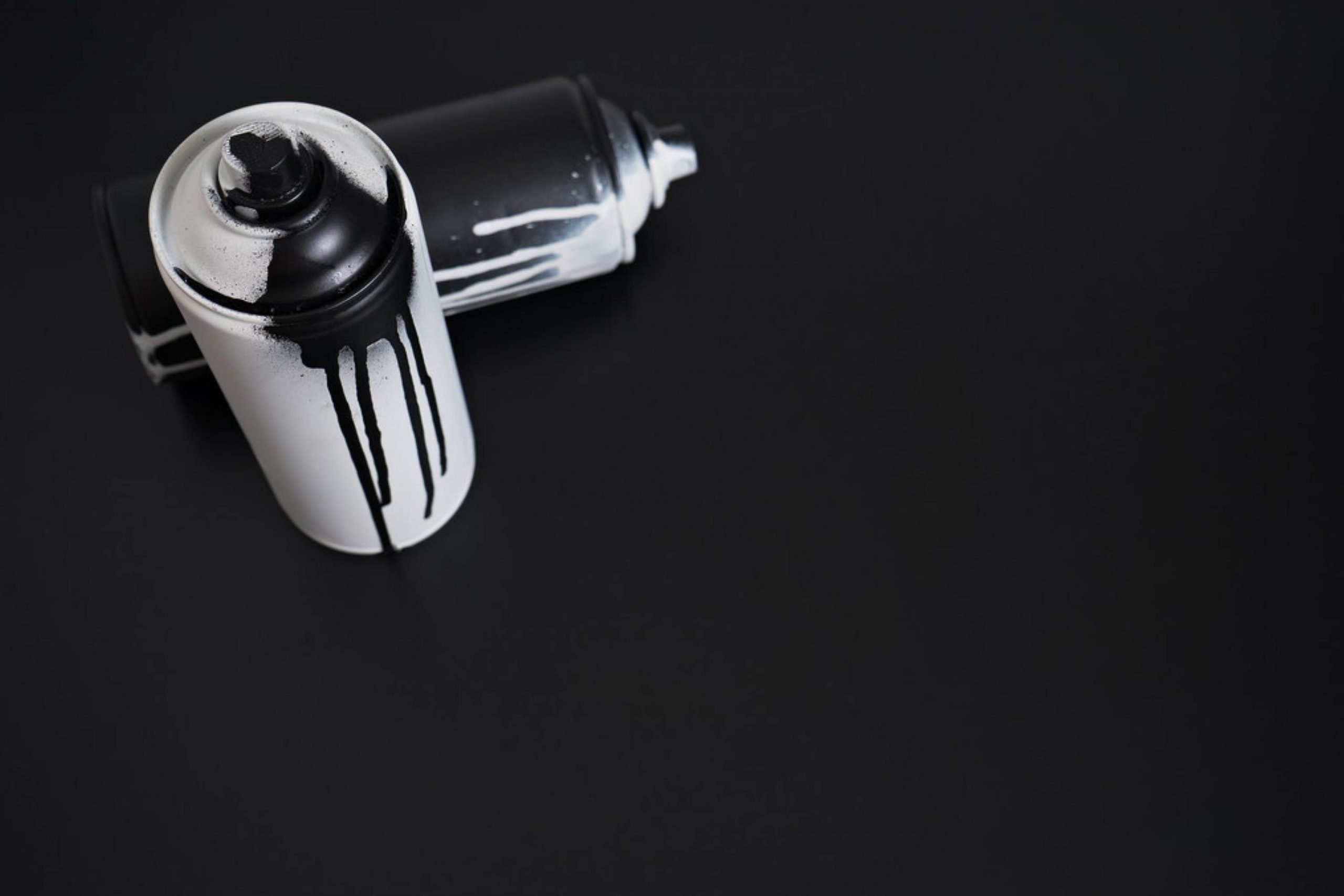
What Are the Reasons For Spray Paint Rubbing Off?
There are a couple of reasons why your spray paint may rub off.
So if you have already faced this issue, make sure that none of these causes is present, otherwise, you know for sure what makes your freshly applied spray paint rub off.
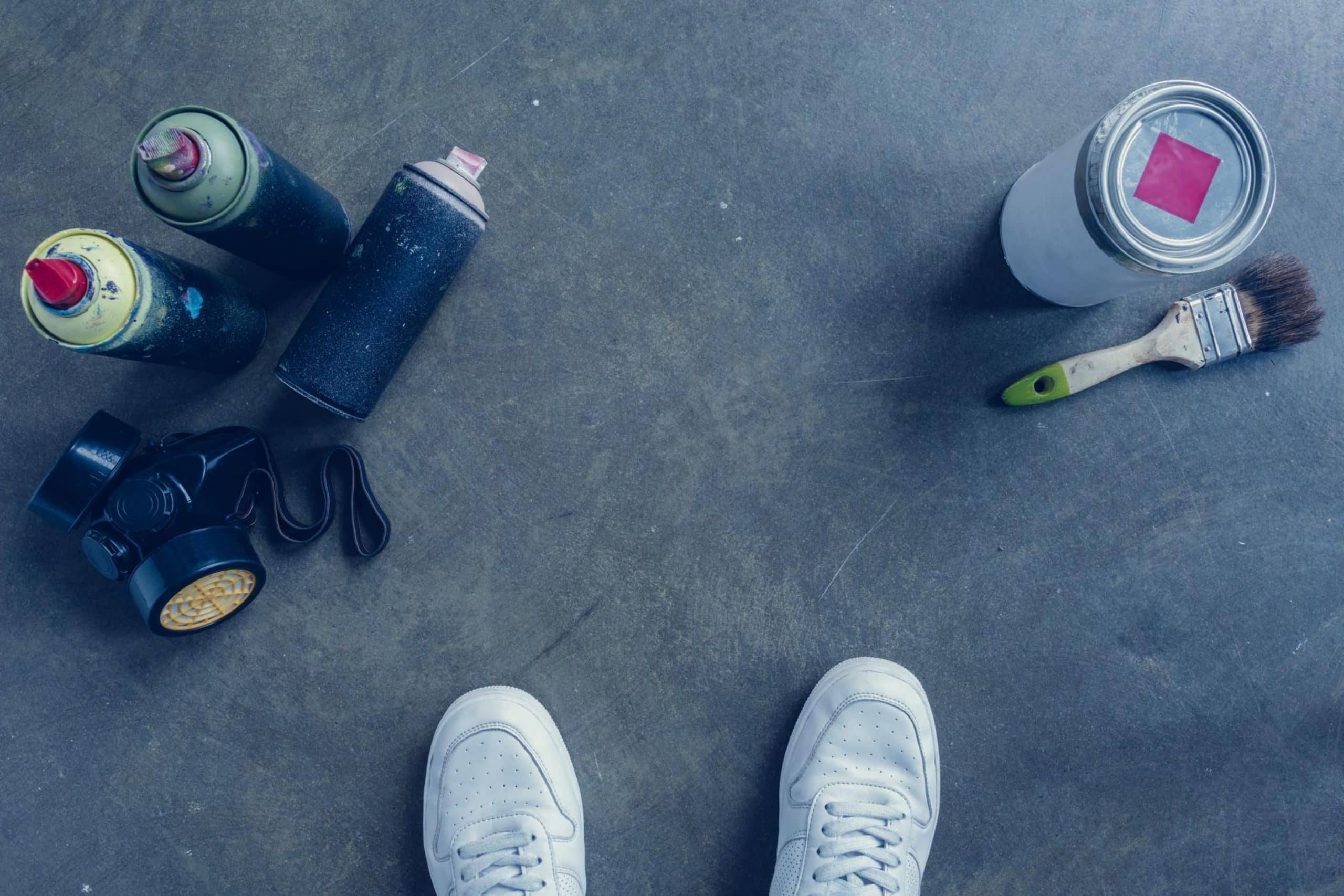
The Nozzle Of the Paint
This is the first reason, but it is not the nozzle itself. Rather it is the nozzle’s grit size. See, a smaller grit size causes particles of paint to break up more.
Also, it causes the paint to become airborne during spraying. But if you are using a larger grit size, it will help you get a more even finish and enable less chance of creating “paint mist”.
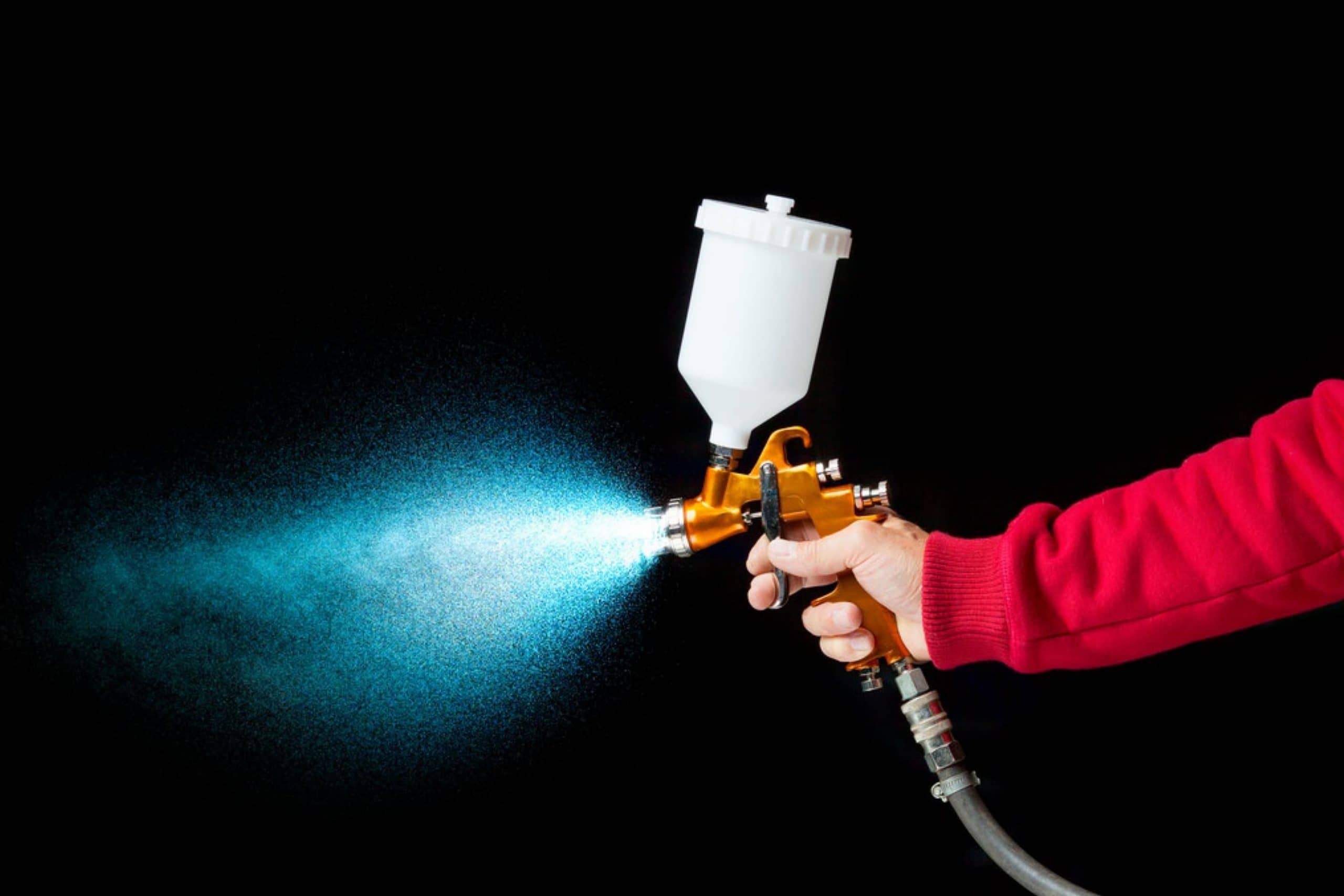
You Are Applying the Wrong Kind Of Paint
Applying lacquer instead of latex or acrylic paints may also cause rubbing off. Lacquer has possibly less elasticity than these paints. A change of weather may make paint peel off the surface. Additionally, applying less quality, cheaper paint that may contain too many fillers.
These are the most common reasons why your spray paint may suddenly start peeling off. However, there is one more cause. When you don’t apply the right coating, this would be another reason that quite many of us forget about.
See, some paints may require two or even three coats and obvious priming in order to achieve a long-lasting result. Also, painting without correct prep work is often another cause of spray paint peeling off.
If you try to apply spray paints on loose things such as flakes or rust may reduce the adhesion of the paint. As a result, such a coat of paint will be very easy to rub off.
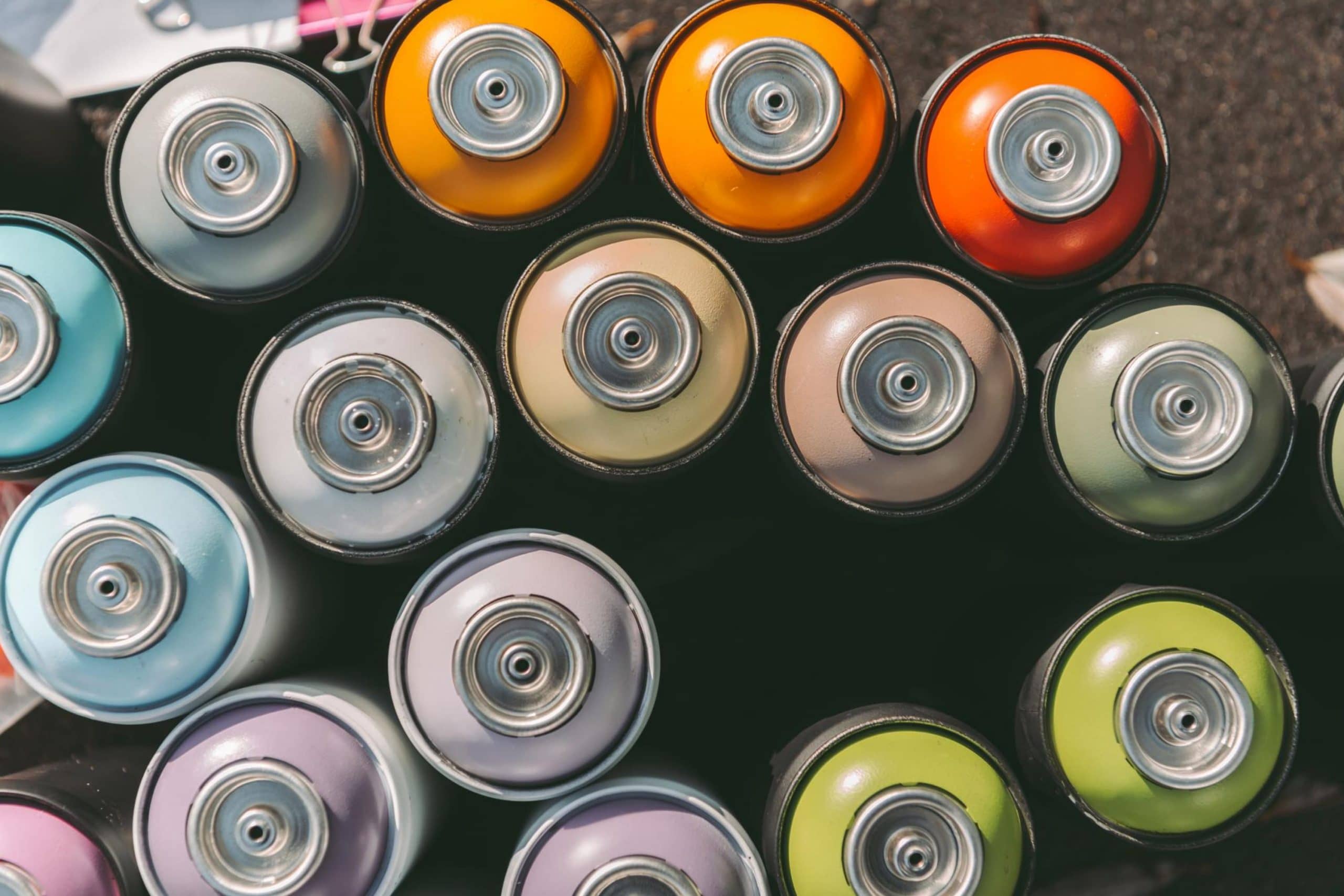
What Surfaces Can You Apply Spray Paints To?
It does matter how well you get the surface ready for the upcoming painting procedure. And of course, you need to be sure that you are applying the paint correctly. However, these factors don’t always work as a guarantee of paint adhering ideally and smoothly.
The material that the surface is made of also plays an important role.
Spray paints are known for being quite universal in terms of surfaces they can be applied to. This kind of paint offers an array of options as applicable. You can use spray paints for any DIY project, like painting something on canvas.
Also, you can use them to paint on fabric, wood, plastic, cardboard, and paper. Some other applications of spray paint are making wall murals and painting graffiti.
Of course, you should note that the color of paint you get in each case depends on where you use it! For example, it may appear different in exterior applications for the natural sunlight.
However, there is one nuance that everyone should keep in mind when working with spray paints! The most common trait of this kind of paint is that it is not preferable for a sturdy or permanent result. It will rub off if you place it close to the painted surface.
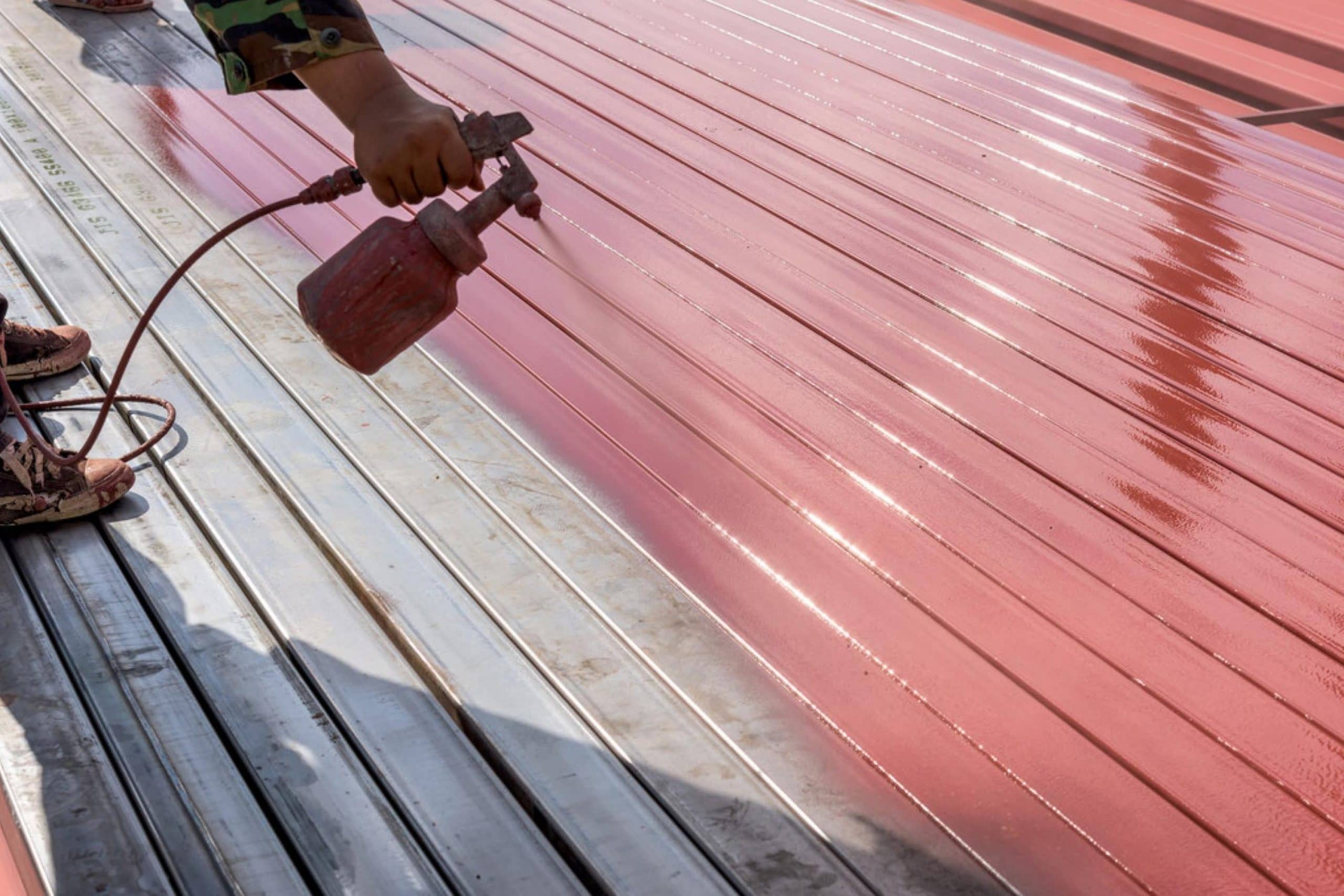
What Is Spray Paint?
Perhaps, it will be easier for you to understand certain nuances and peculiarities of spray paints after you find out more about this popular type of paint. If you try to give a general definition of spray paints, you can say that they are a distinct type of paint you can spray on different surfaces.
Spray paints can add attractive color and extraordinaire personality to nearly any surface! And if you take a look at the city buildings and at their walls, in particular, you will understand what we mean – graffiti has become a new kind of street art long ago!
By the way, in order to get an even and good-looking coat of this paint, there should be a 15-20 cm distance between the sprayer and the surface when you apply the paint.
Unlike other kinds of paint that are sold in cans, boxes, or tubes, the spray paints come in an aerosol container, just like mosquito killers or other aerosol-like products.
The way these cans work is simple: thanks to the air pressure inside the can, which always remains too high, you can spray on point hassle-free.
By the way, spray paints often come under some other names, for example, lacquer, enamel, etc. So if you see those names on the aerosol cans of paint in a store, don’t be surprised! Spray paint has at least the following four ingredients:
- pigments
- binders
- solvents
- additives
Because of such a list of components, this type of paint is considered a chemical product that has fumes that might be harmful if inhaled in large amounts! This is why it is recommended to work in a respirator mask while you are painting with spray paints.
Some common versions of spray paints that are popular today include such paints as:
- latex acrylic
- nitrocellulose lacquers
- bitumen
What is the difference, some of you may wonder? Latex and acrylic paints are water-based. Nevertheless, acrylic paints have chemical ingredients too.
They are more elastic in comparison to latex paint. On the other hand, latex paints are more affordable than acrylic paints.
And here is another curious fact about spray paints that most of you probably don’t know about. As you know, spray paints come in aerosol cans and each can of spray paint has a nozzle. The spray tip of the aerosol is around 80-120 mesh.
However, some spray paint brands or models have more ranges like up to 220 mesh for proper detailing. This is an important fact connected with spray paint rubbing off.
Well, like that, now you know a bit more about spray paints and what can make them start rubbing off for no reason. Well, not quite for no reason, there are a few reasons and we have provided you with their description in this article.
With all the information given to you, it will be easier for you to figure out what exactly makes your spray paint rub off after it is applied, and in addition, you will be able to prevent this scenario to avoid it in the future.
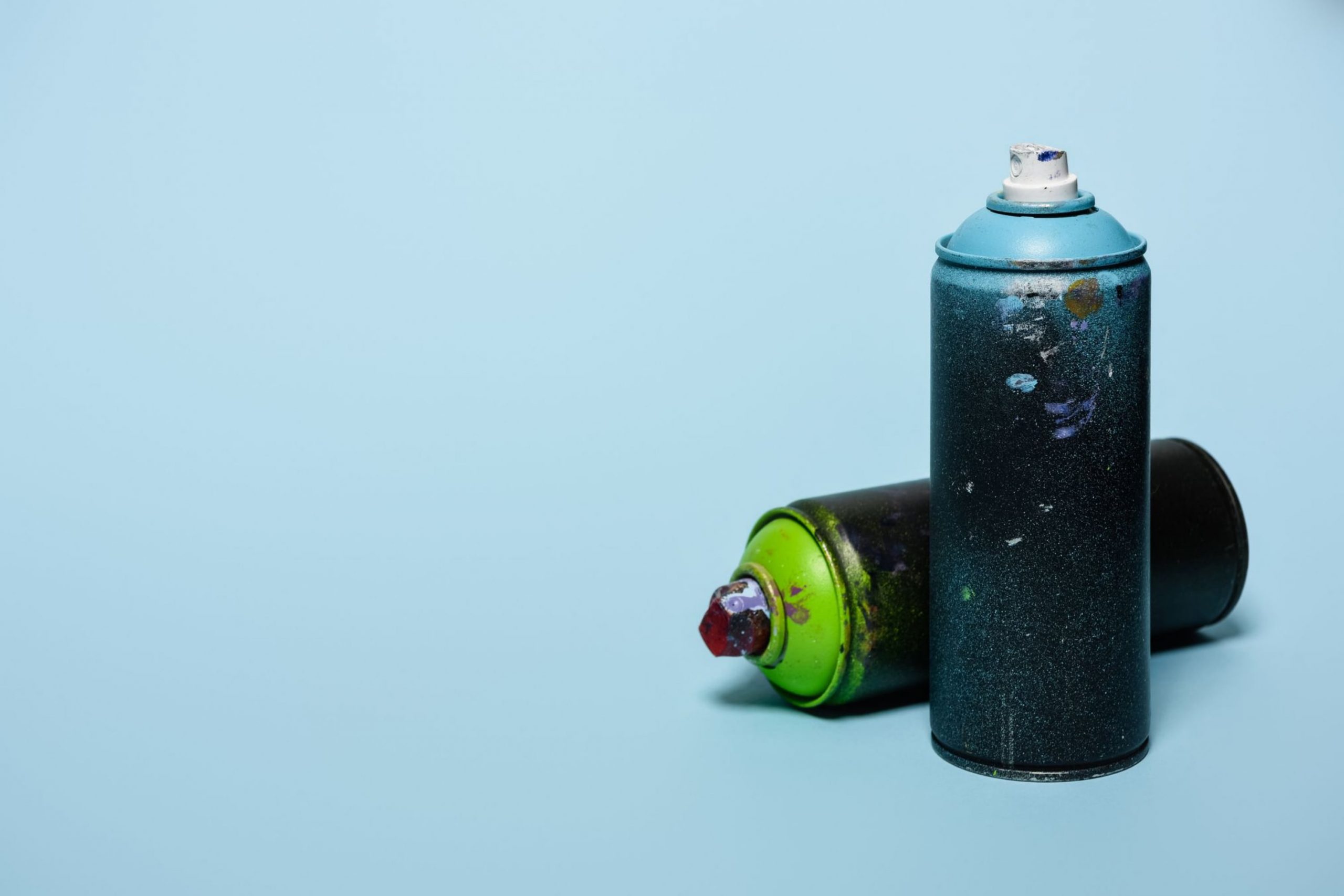
[wp-faq-schema title=”Frequently Asked Questions”]
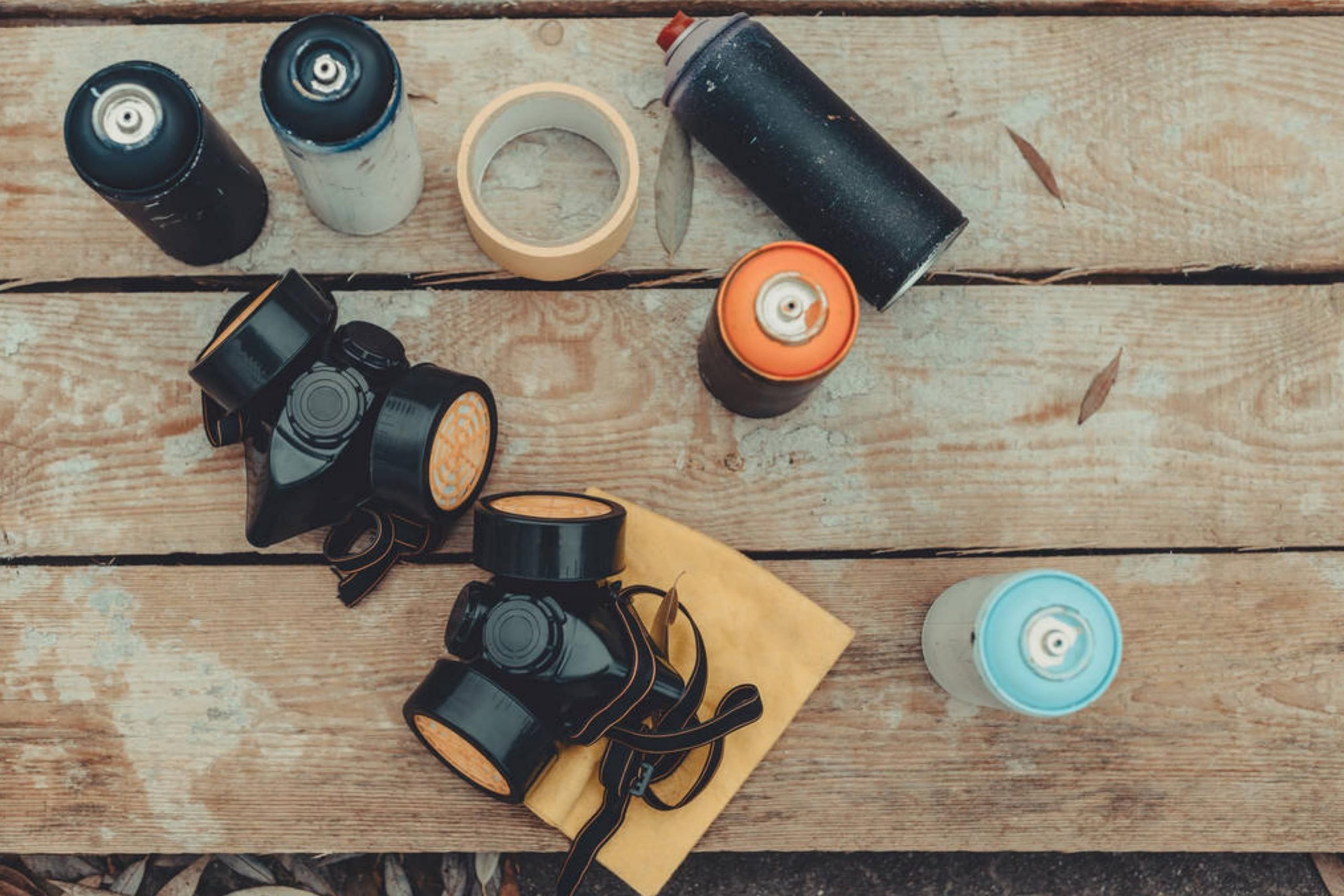
Does anyone know what can be wrong if my spray paint doesn’t come out of the nozzle? It’s just hissing but there’s no paint coming out of it. I know that the can is half-full so empty can is not an option.
Maybe the paint is way too old? It happens with the old paint since it gets too thick and may even dry (well, probably not the spray paint). Check the expiry date on the can and if it’s old, just buy a new one.
Hi! Is there anyone well aware of spray paints here? I need your help. See, I’m going to spray paint my table but I don’t know whether it should be degreased first. What’s your opinion?
Hello! I suggest you degrease it just in case. Anyway, the surface must be clean for the paint to adhere well. If you also remove the greasy folm, the effect will only be even better!
Hi! Do you guys know why does my spray paint keep coming off after I apply it over the surface? I cleaned the surface propr to paint application but it still won’t stick!
Hello! Maybe you cleaned it wrong. If you just wiped it with a dry cloth, simply removing the dust is not enough. The surface should be degreased and that can be done with a proper solution. Try to either wash it with soapy water (and rinse thoroughly), or use any degreasing liquid.
How do you seal spray paint? I want to repaint my swings in the garden but since they’re outdoors, I’d like to make the color last longer.
I guess you just apply a clear coat over your paint, and that’s it. I’m not good at these painting nuances, so I can hardly tell you something really useful, sorry!
I want to paint my art project with a silver paint but I’m not sure whether it will last. See, I know this kind of paint tends to rub off. Will clear coat stop paint from rubbing off?
I’m pretty sure it can help! See, cheap paints really tend to rub off easily, but if you apply a clear coat over the layer of paint, it can prevent the paint from damage, as well as stop it from rubbing off.
How do I make sure paint doesn’t come off? Is there any 100% guaranty method?
Well, I’m not sure you can find a 100% guaranty method, but you can use a clear coat tos eal your surface. It will surely help, I assume.
Does anyone know how to keep spray paint from rubbing off plastic surfaces? No matter how thickly I apply it, it will still come off sooner or later! How do I stop this?